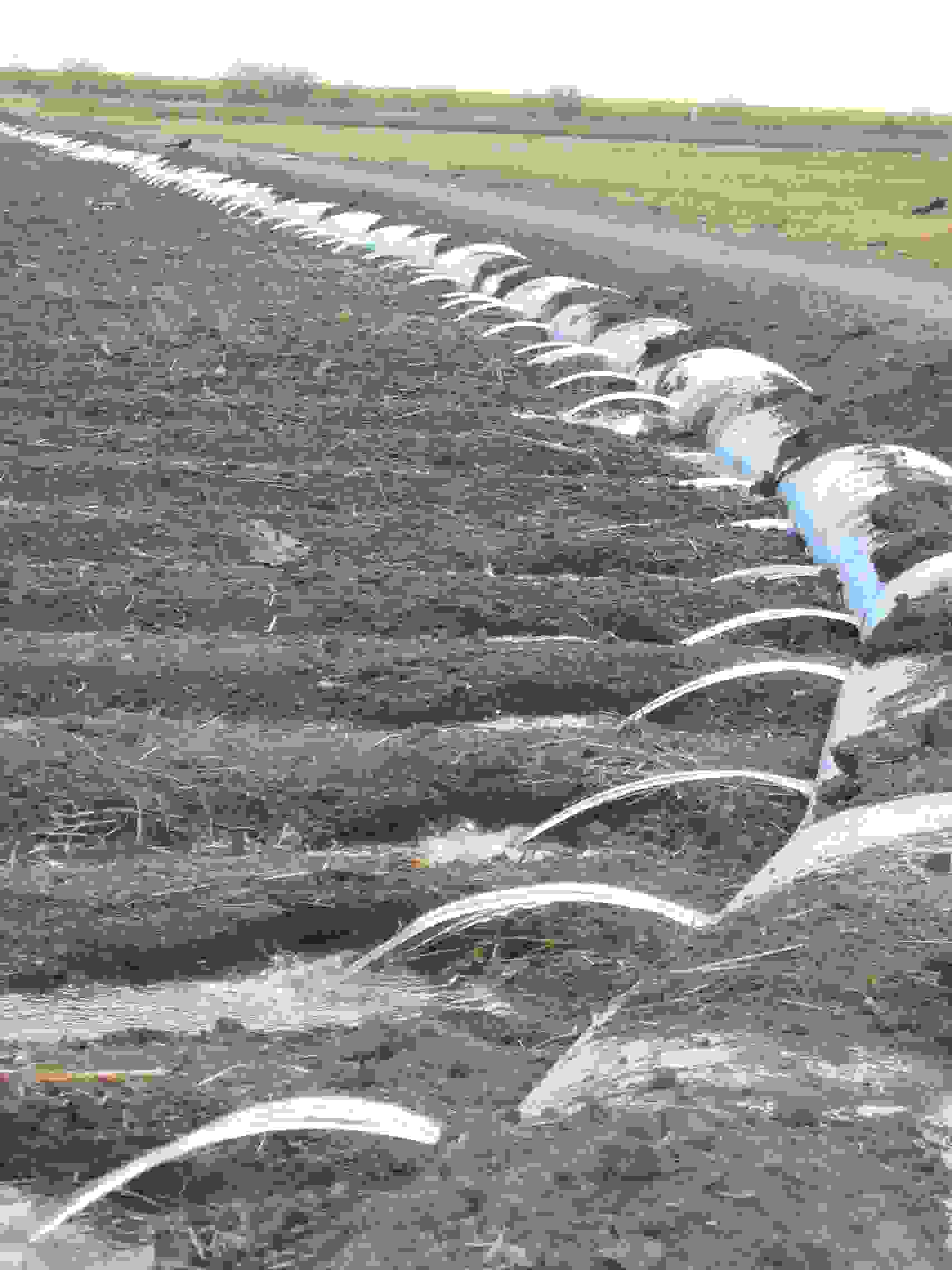Dr. Jason Krutz, director of the Mississippi Water Resources Research Institute, recently spoke to more than 30 producers from the Lower Rio Grande Valley about how a combination of technology and management approaches being applied in the Mississippi Delta could be used in the Valley to help reduce water use in furrow-irrigated fields while maintaining or increasing yield.
Krutz was part of the “Improving Cotton and Row Crop Yields with Efficient Irrigation” workshop, held Oct. 16 at the Texas A&M University-Kingsville Citrus Center in Weslaco. The workshop was sponsored by the Texas Water Resources Institute (TWRI), Texas A&M AgriLife Extension Service and Texas Water Development Board (TWDB).
Krutz recommended Valley producers use three irrigation tools — computerized hole selection for polypipe tubing, surge valves and soil moisture sensors — in their farming practices.
Krutz said costs for producers who used these three tools in Mississippi was $8.20 per acre with increased yield and profits while saving water. For example, he said, using these tools for corn yielded a seven bushel average yield increase, used 50 percent less water and resulted in a $40 per acre increase in profits compared to the typical irrigation approach.
After Krutz’ presentation, Ray Prewett, ag issues consultant, led a cotton producer panel on potential solutions to improve furrow irrigation.
Mac Young, AgriLife Extension program specialist at the Texas A&M AgriLife Research and Extension Center at Corpus Christi, highlighted ways to improve yields and economics through irrigation management.
Dr. Askar Karimov, research associate in Texas A&M University’s biological and agricultural engineering department, gave an overview of the Rio Grande Water project, managed by TWRI. The project is evaluating how the use of available water resources within the basin can be optimized to provide the greatest societal return to help sustain agricultural production while promoting economic development, increasing water use efficiency and improving valuable ecosystem services.
Agency personnel gave updates on various water conservation technical and financial assistance programs.
The workshop was part of TWRI’s Lower Rio Grande Valley Irrigation Education and Outreach project, funded by TWDB. The project promotes water conservation strategies among growers and irrigation district boards and managers. It also promotes the benefits and advantages of water conservation and water use efficiency of various on-farm irrigation and irrigation district water management practices, especially when compared to conventional practices.
Project partners include AgriLife Extension, AgriLife Research, Texas A&M University-Kingsville Citrus Center, Harlingen Irrigation District, WaterPR and commodity group leaders in the Valley.


